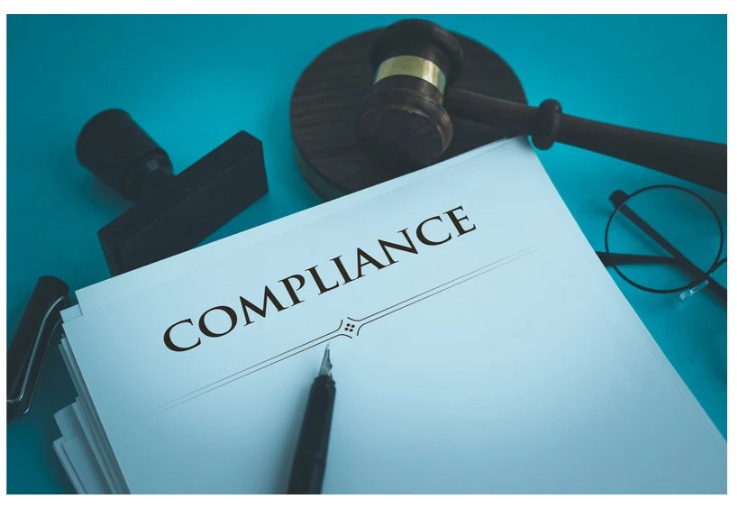
SEC Compliance: Protecting Stakeholders in a Decentralized Finance Age
The world of finance is undergoing a seismic shift. Traditional financial institutions are facing stiff competition from a rising tide of decentralized finance (DeFi) platforms, blockchain technology, and cryptocurrencies. This rapidly evolving landscape offers exciting opportunities for innovation and financial inclusion, but it also raises critical questions about regulation and investor protection. In this article, we will delve into the challenges and importance of SEC compliance in the era of decentralized finance.
Understanding the Decentralized Finance Revolution
Decentralized finance, or DeFi, refers to a set of financial services and applications built on blockchain technology that operate outside of traditional financial intermediaries like banks and brokerages. These platforms use smart contracts to automate processes such as lending, borrowing, trading, and earning interest, all without the need for a centralized authority.
The appeal of DeFi lies in its promise of accessibility, transparency, and reduced costs. Anyone with an internet connection can participate in DeFi, and transactions are recorded on an immutable public ledger, eliminating the need for intermediaries and reducing the risk of fraud. However, these advantages come with their own set of challenges.
The Need for SEC Compliance in DeFi
As DeFi continues to gain traction, regulators, including the U.S. Securities and Exchange Commission (SEC), are grappling with how to adapt to this rapidly evolving landscape. The SEC’s primary mandate is to protect investors, maintain fair and efficient markets, and facilitate capital formation. In a decentralized financial ecosystem, achieving these objectives becomes more complex but is no less important.
Here are some key areas where SEC compliance is crucial in the DeFi space:
- Token Sales and Initial Coin Offerings (ICOs): In the early days of DeFi, ICOs were a popular method for fundraising. However, they often lacked transparency and regulatory oversight, leading to fraudulent activities. The SEC has since cracked down on unregistered ICOs, emphasizing the need for DeFi projects to comply with securities laws.
- Decentralized Exchanges (DEXs): DeFi platforms frequently use decentralized exchanges for trading cryptocurrencies and tokens. The SEC’s purview extends to these platforms if they facilitate trading of securities. Ensuring that DEXs comply with securities regulations is essential to protect investors.
- Decentralized Lending and Borrowing: DeFi lending and borrowing platforms are a cornerstone of the ecosystem. However, these platforms must address concerns related to interest rates, collateralization, and investor protection. SEC compliance can help mitigate risks in this area.
- Asset Management and Investment Funds: DeFi has given rise to decentralized asset management and investment funds. These entities manage pools of assets and require careful regulatory oversight to safeguard investor interests.
- Market Manipulation and Fraud: The transparent nature of blockchain does not eliminate the risk of market manipulation or fraudulent activities. The SEC’s enforcement actions are essential in maintaining the integrity of DeFi markets.
Challenges in Regulating DeFi
Regulating DeFi presents a unique set of challenges for the SEC and other regulatory bodies. Unlike traditional financial systems, DeFi operates globally, and the decentralized nature of these platforms makes it difficult to pinpoint responsibility. Additionally, many DeFi projects are open-source, community-driven, and have no centralized leadership, making it challenging to hold specific individuals or entities accountable.
The borderless nature of DeFi also creates jurisdictional issues, as different countries have varying regulatory approaches to cryptocurrencies and blockchain technology. This lack of harmonization in regulations can lead to regulatory arbitrage, where DeFi projects choose jurisdictions with lax oversight.
Furthermore, the rapid pace of innovation in DeFi means that regulators are often playing catch-up. New financial instruments and protocols are created regularly, and regulators must adapt swiftly to address emerging risks.
The Role of Self-Regulation and Innovation
In the absence of comprehensive regulatory frameworks, the DeFi community has taken steps toward self-regulation and innovation to protect stakeholders. Some DeFi projects have implemented their own compliance measures, including Know Your Customer (KYC) and Anti-Money Laundering (AML) procedures, to enhance transparency and reduce risks.
Moreover, decentralized autonomous organizations (DAOs) are emerging as a governance mechanism for DeFi platforms. These DAOs allow community members to participate in decision-making processes and establish rules for the platform. While still in its infancy, DAOs have the potential to create more transparent and accountable DeFi ecosystems.
The Future of SEC Compliance in DeFi
The future of SEC compliance in DeFi is likely to involve a combination of regulatory oversight, self-regulation, and technological innovation. Regulatory bodies like the SEC will continue to adapt and provide guidance on how existing securities laws apply to DeFi projects.
Technological advancements, such as blockchain analytics and smart contract auditing, will play a crucial role in ensuring compliance and reducing risks in DeFi. These tools can help identify fraudulent activities, assess the security of smart contracts, and track transactions more effectively.
Cross-border cooperation among regulators will also be essential to address the global nature of DeFi. Efforts to harmonize regulations and establish best practices for DeFi platforms will help create a more consistent and secure environment for investors and users.
Investor Education and Due Diligence
In the DeFi landscape, where innovation is rapid and risks are inherent, investors must exercise caution and conduct thorough due diligence. It’s essential to understand the risks associated with each DeFi project, including its governance structure, security measures, and compliance with relevant regulations.
The SEC provides valuable resources and guidance to help investors navigate the DeFi space. Investors should take advantage of these resources and seek professional advice when necessary.
Conclusion
The decentralized finance revolution is reshaping the financial industry, offering unprecedented opportunities for innovation and financial inclusion. However, it also brings with it unique challenges in terms of regulation and investor protection. The SEC plays a vital role in ensuring that stakeholders are safeguarded in this evolving landscape.
While regulatory challenges persist, the DeFi community’s commitment to self-regulation and technological innovation is a promising sign. The future of SEC compliance in DeFi will likely involve a combination of regulatory oversight, industry collaboration, and the development of advanced tools to address emerging risks.
As DeFi continues to mature, it is crucial for investors and users to stay informed, exercise caution, and remain vigilant in their due diligence efforts. With the right balance of regulation, innovation, and responsible engagement, decentralized finance has the potential to deliver on its promise of a more inclusive and accessible financial future.
Contact Cyber Defense Advisors today to learn how our SEC Compliance Consultant can tailor the right service for your needs.





